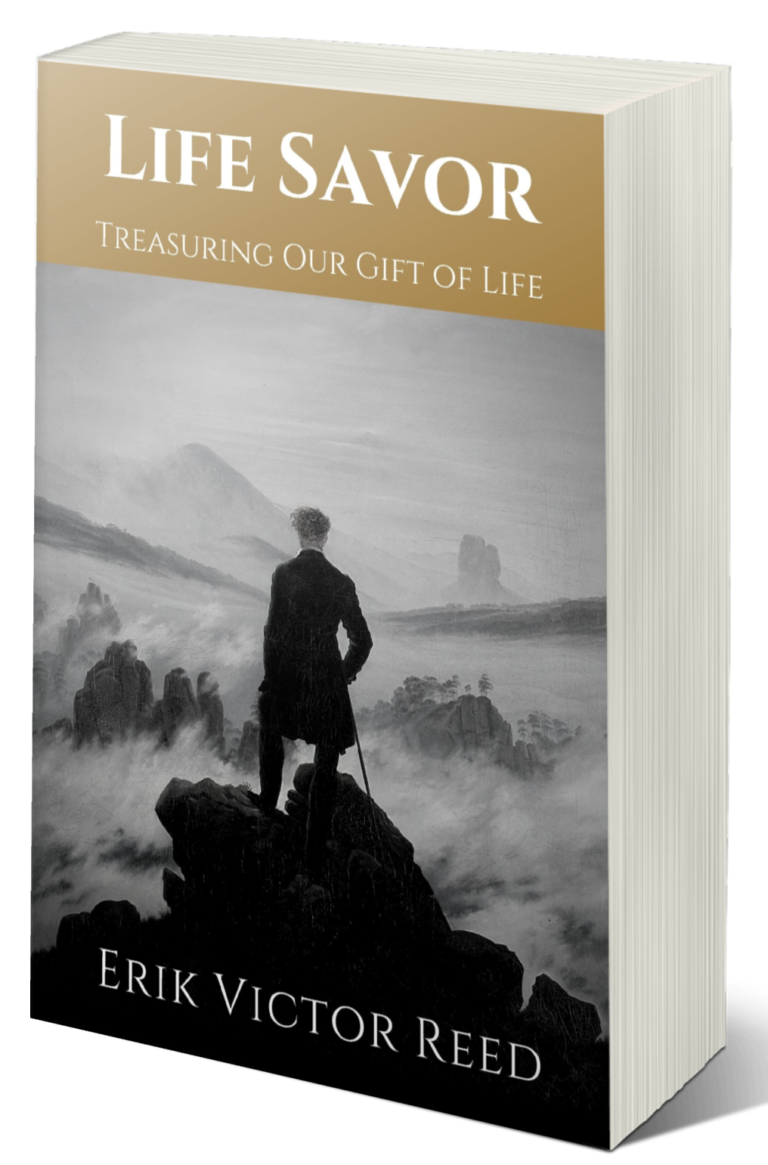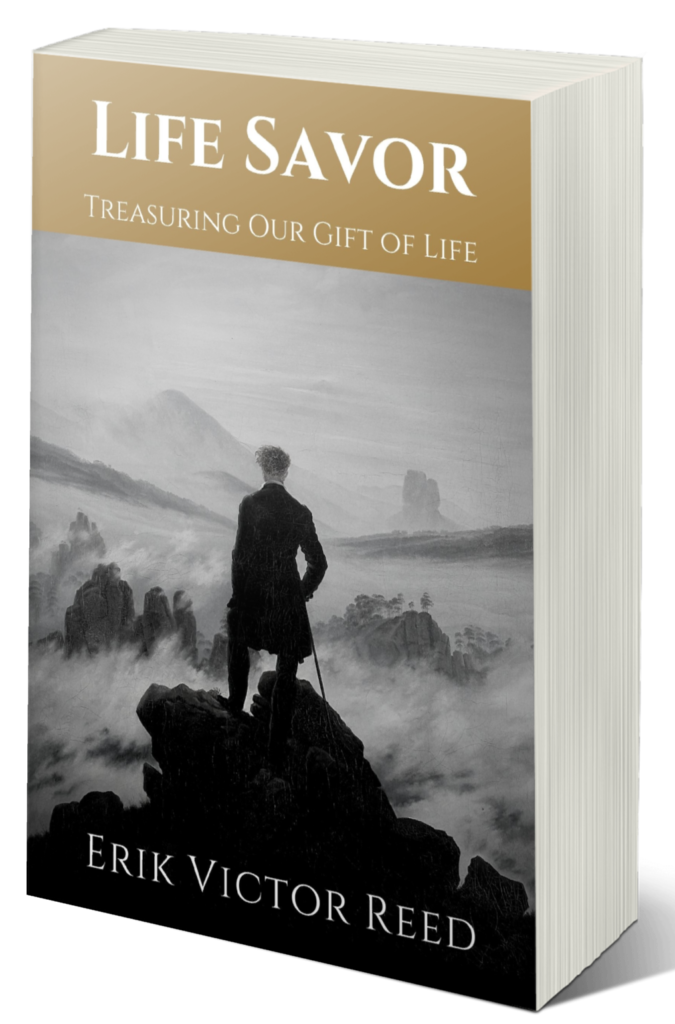Why the act of return is itself a victory
The Arc of Perspective
Appreciation is not constant. No one can live permanently awestruck, permanently grateful, permanently at peace.
There are storms. There are losses. There are nights when life feels unbearable, mornings when nothing glitters, afternoons when even endurance feels impossible.
But the beauty of perspective is that it does not need to be constant to matter. It only needs to be returned to. As I note in Life Savor: sometimes just knowing the perspective is there, folded in our back pocket, is enough to help us endure until we can feel it again.
Why Return Matters
The return itself is not small. It is everything.
When grief has raged and subsided, and you suddenly notice a bird outside your window — that is the return. When you taste coffee after weeks of numbness and actually register the flavor — that is the return. When laughter breaks through despair for even a second — that is the return.
Each time we come back to appreciation, we re-affirm the value of life itself. The act of return is a quiet rebellion against despair, an affirmation that beauty still lives here, even after devastation.
A Widower
Imagine a widower who, after months of numbness, suddenly notices sunlight glinting through autumn leaves. He pauses, and to his own surprise, feels a pang of gratitude. Not gratitude that his partner is gone — nothing will ever make that okay. But gratitude that the world still holds some light, some color, some warmth.
That moment doesn’t erase grief. It doesn’t mean he’s “over it.” But it means life has found a crack in the armor. It means appreciation has returned, even if only a little bit.
Voices of Reminder
Marcel Proust captured the paradox: “We are healed of a suffering only by experiencing it to the full.” We cannot leapfrog over grief to land in gratitude. We must pass through the valley.
Raphael Cushnir added: “Emotions don’t need to be felt forever, or obsessively, but just long enough to have their say.” Grief has its say. Then, eventually, gratitude does too.
And John Green, in his piercing simplicity: “It hurts because it mattered.” That hurt is proof of value. And when we return to appreciation, we do not deny the hurt — we honor it by seeing that value still surrounds us.
The Power of Memory
Return is often sparked by memory. A song, a smell, a photograph can unlock a wave of appreciation for what was, even if it is gone. This is not sentimentality; it is sentiment in its highest form — the proof that we cared, that we loved, that we lived.
Memory makes return possible. It teaches us that gratitude does not depend on present circumstances alone, but on our ability to see life itself as gift, even when scarred.
Mortality and the Return
Mortality deepens the act of return. We know that life is fragile, that every moment is precarious, that nothing is guaranteed.
This knowledge can sharpen grief, but it also sharpens gratitude. To return to appreciation after despair is to declare: I am still alive. I still get to be here. I still have the chance to savor this fleeting miracle.
Practical Reflections
- Don’t rush it. Let emotions speak fully before forcing positivity. The return will come in its own time.
- Notice the small cracks. Joy rarely floods back all at once. It returns in glimmers — a taste, a sound, a glance.
- Honor the cycle. Expect to lose and regain perspective many times. The cycle itself is part of being human.
- Celebrate the return. When appreciation reappears, no matter how small, treat it as sacred.
Closing Thought
The act of returning to appreciation is not failure. It is resilience. It is proof that despair does not get the final word.
We may lose gratitude for a season, but we can find it again. And when we do, it is sweeter for having been lost.
We needn’t demand constant appreciation. But we should honor the return — again and again — as the true heartbeat of a grateful life.
For more like this, visit the broader project at life-savor.com, or explore the Life Savor book itself.
To learn more about Life Savor’s philosophy,
read Life Savor: Treasuring Our Gift of Life by Erik Victor Reed.








